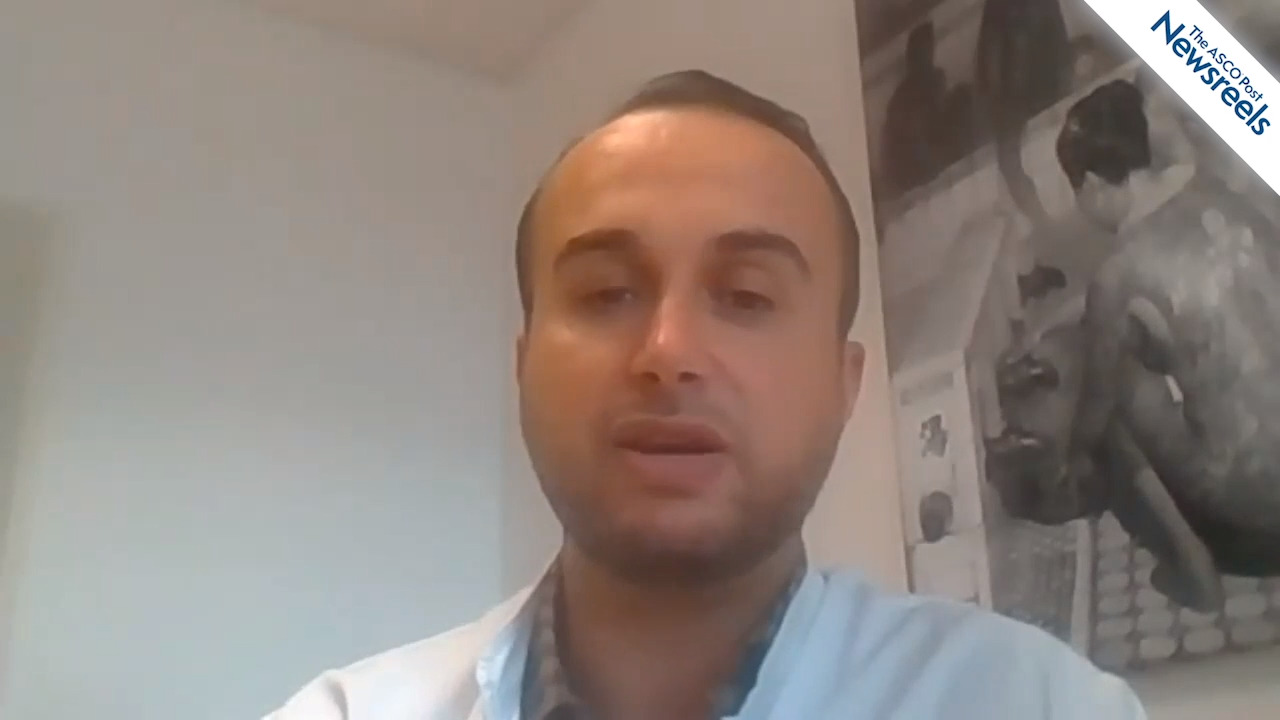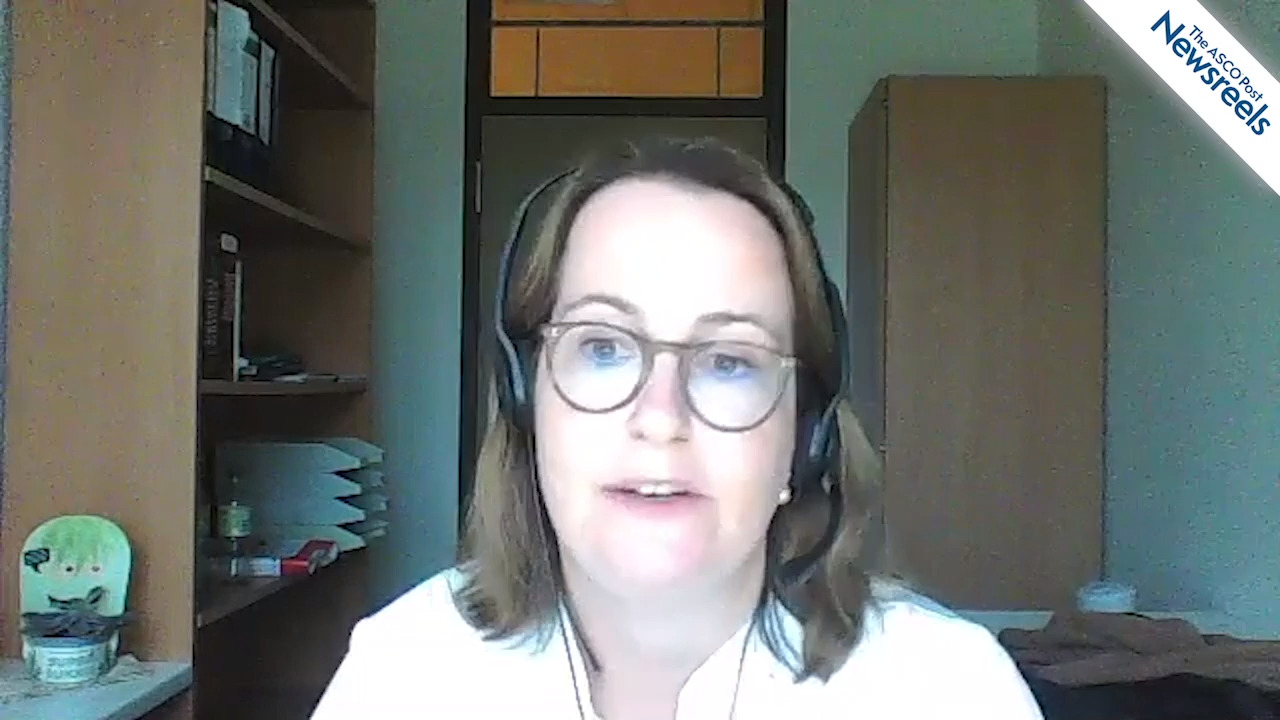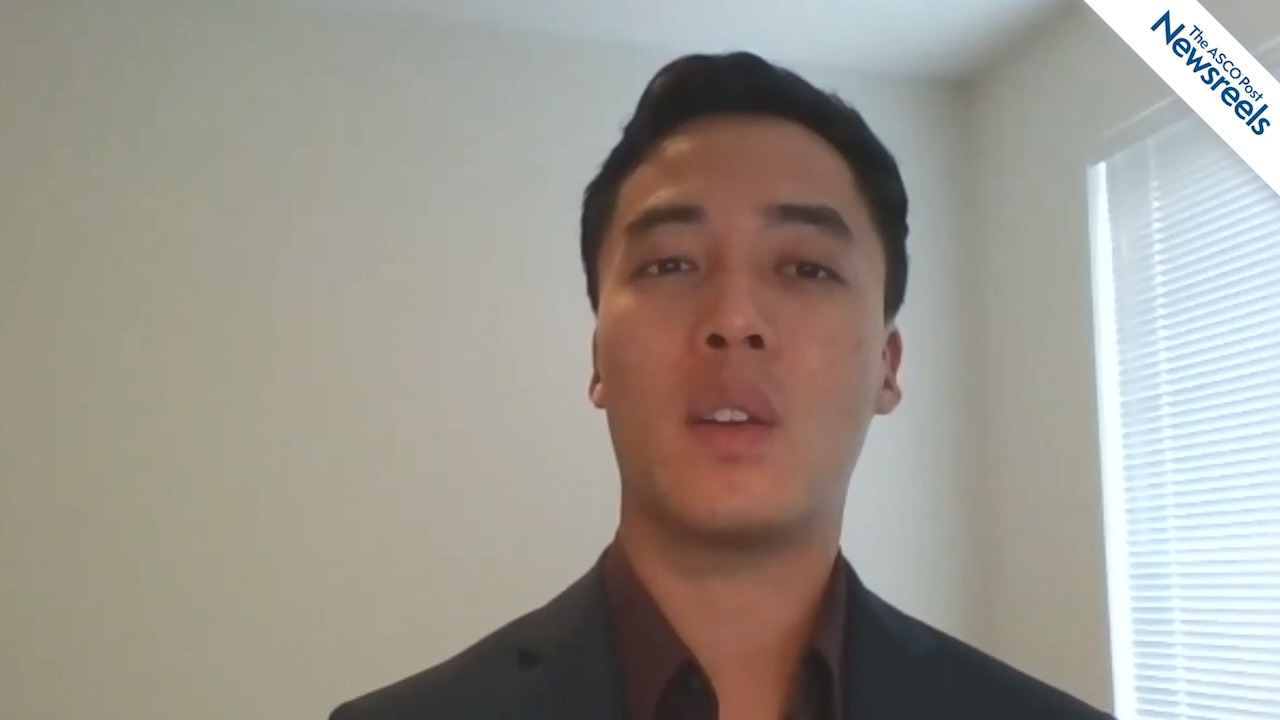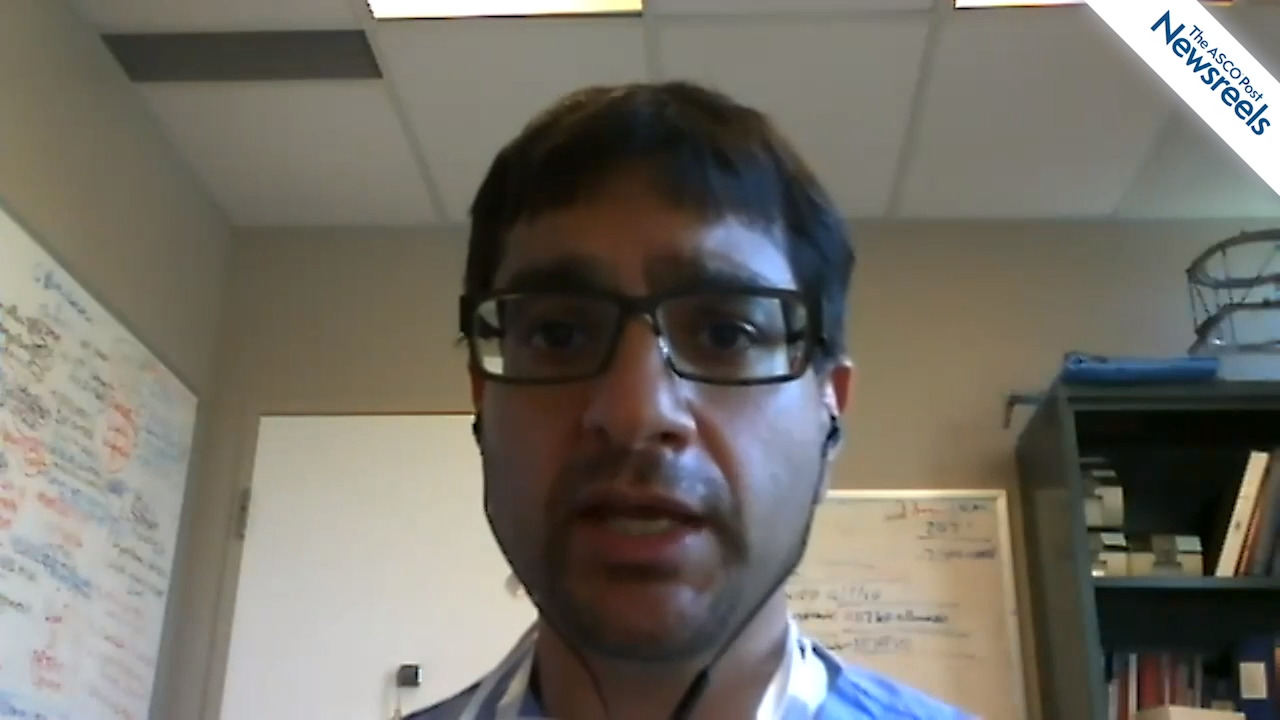Alphonse G. Taghian, MD, PhD, on Irradiation for Breast Cancer: Defining the Optimal Dose
2020 ASTRO Annual Meeting
Alphonse G. Taghian, MD, PhD, of Massachusetts General Hospital, reviews the 10-year follow-up of a dose-escalation trial studying accelerated partial-breast irradiation and discusses the optimal dose, adverse effects, and cosmetic outcomes (Abstract 25).
The ASCO Post Staff
Paul Sargos, MD, of the Institut Bergonié, discusses phase III findings from the GETUG-AFU 17 study, which compared adjuvant vs early salvage radiotherapy, both combined with short-term androgen-deprivation therapy after radical prostatectomy for localized prostate cancer. Although lacking statistical power, the study showed no benefit in event-free survival for adjuvant compared to salvage radiotherapy (Abstract 33).
Juliane Hörner-Rieber, MD, of Heidelberg University Hospital, discusses phase III results of the MINT trial, which showed that conventionally fractionated intensity-modulated radiotherapy with a simultaneous integrated boost was noninferior to three-dimensional conformal radiotherapy followed by a sequential boost for both local control and cosmesis in patients with breast cancer (Abstract 19).
The ASCO Post Staff
Justin Oh, MD, of the University of British Columbia, discusses results from the ASCENDE-RT trial, which compared a low-dose–rate brachytherapy boost to a dose-escalated external-beam boost for patients with high- and intermediate-risk prostate cancers (Abstract 127).
The ASCO Post Staff
Arjun Sahgal, MD, of the Sunnybrook Health Sciences Centre, discusses results of the first phase III trial to suggest that dose escalation with stereotactic body radiotherapy may be superior to conventional palliative radiotherapy in improving pain outcomes for patients with spinal bone metastases (Abstract LBA2).
The ASCO Post Staff
Jeff M. Michalski, MD, MBA, of the Washington University School of Medicine, discusses a Children’s Oncology Group study that confirmed data previously reported: Involved-field radiotherapy is noninferior to posterior fossa radiotherapy in patients with average risk-medulloblastoma. However, low-dose craniospinal irradiation is not as effective as standard-dose irradiation in younger children (Abstract 1).





